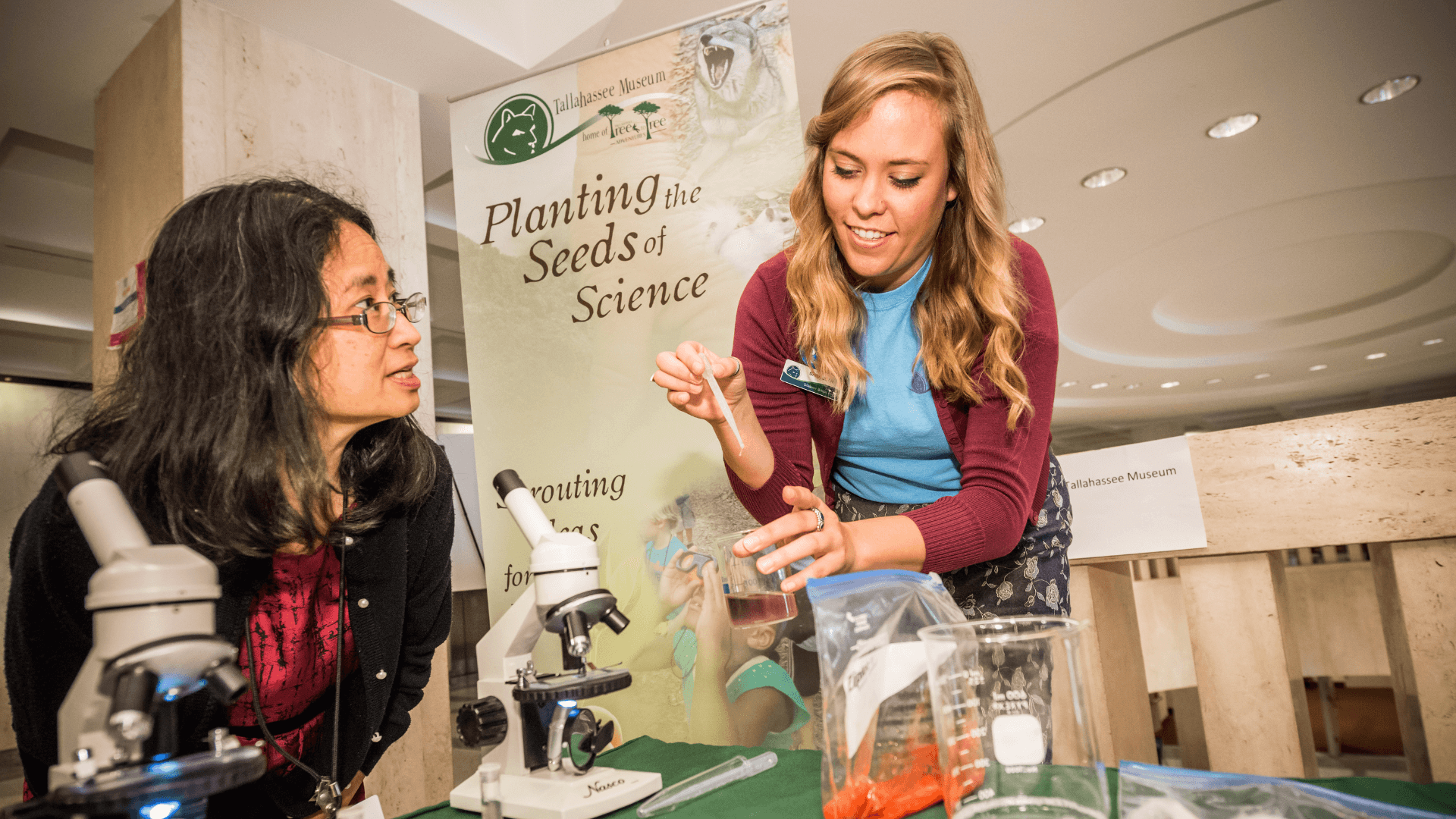JoAnn Newman and Rachel Kerestes
Florida is a STEM state. Our economy is driven by industries and occupations in science, technology, engineering and math fields. Now more than ever, policymakers must act to foster the state’s STEM economy by engaging young people and creating career opportunities for generations to come.
In 2021 Florida was home to 4.1 million STEM professionals, an increase of 450,000 over five years. They represent 33% of the state’s workforce, generate $447 billion in economic activity and account for 36% of Florida’s gross domestic product.
More than half (55%) of Florida’s STEM professionals do not hold a bachelor’s degree—earning their training through apprenticeships, community colleges, vocational training, the military and more.
These People of Science include environmental engineers, electricians, information security analysts, sociologists, soil scientists, water quality technicians and accountants.
STEM occupations offer lucrative and exciting paths in multiple disciplines. On average, STEM professionals earn more than non-STEM workers. According to the National Science Foundation STEM workers enjoyed median wage and salary earnings nearly $25,000 higher than non-STEM workers. Among STEM professionals with advanced degrees, median annual salaries of $100,000 or more are common.
Despite the current demand for skilled STEM employees and the opportunities for dynamic and well-paid careers STEM provides, we are failing to educate, train and build the STEM workforce of the future in sufficient numbers.
According to the Bureau of Labor Statistics, the U.S. will need an additional one million STEM professionals by next year to maintain its leadership position in science and technology.
Given the importance of STEM to Florida’s economy, our leaders cannot sit idle. More must be done to engage students earlier and bring science to life for them, make older students and new graduates aware of the many exciting career options in science and technology—many of which do not require a bachelor’s degree, while advanced degrees offer additional opportunities —and train (or retrain) current workers for a new path.
In our increasingly complex society, the value of science has never been greater. Science literacy not only leads to a better understanding of the world’s problems, but it promotes the development of skills to help solve them. Through study and experimentation, we acquire knowledge, which leads to understanding, innovation and ultimately prosperity. Florida’s youth can save the world and science can help them do it.
STEM education helps grow Florida’s technological workforce. Science museums, for example, serve as hubs for STEM learning, easily facilitating opportunities between industry, education and the public. Collaborations between science museums, corporations and education are key to developing a comprehensive approach to promote STEM learning from cradle to career.
The Orlando Science Center established STEM Day at the Capitol a decade ago, held this year on January 25, to highlight how STEM education engages our students, prepares them for many amazing career paths and inspires our next generation of innovators.
Let’s work together as parents, educators, business leaders and policymakers to establish a deep STEM talent pool and create an environment in which Florida’s leadership in aerospace, agriculture, environmental science and other STEM-intensive industries will be unmistakable. If we can do that, Floridians will prosper.
# # #
JoAnn Newman is an Orlando resident and President and CEO of the Orlando Science Center.
Rachel Kerestes is a Fernandina Beach resident and Executive Director of Science is US.
